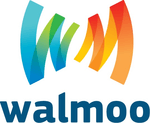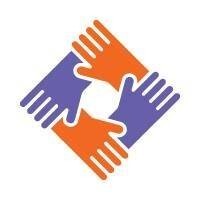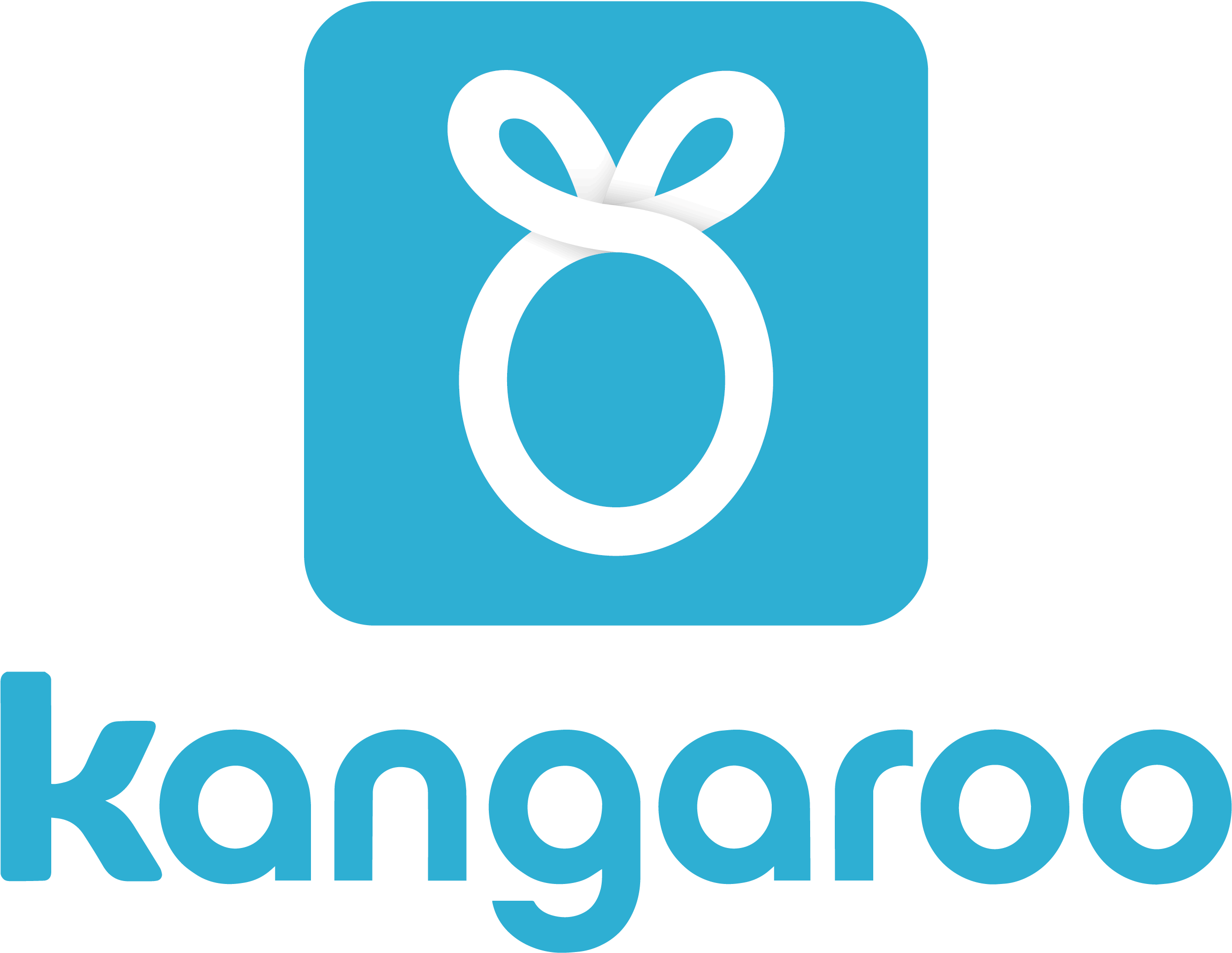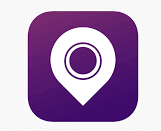Yes, most small business reward program software is accessible across numerous devices and platforms. Customers may now quickly access their loyalty benefits and incentives from their preferred devices, such as smartphones, tablets, and computers. The software is usually cross-platform and accessible via web browsers or dedicated mobile apps. This guarantees a smooth and consistent experience for both the company and the customer.
List of 20 Best Small Business Loyalty Programs Software
Xoxoday Plum is a rewards, incentives, and benefits platform that simplifies and streamlines reward programs for businesses. With our cutting-edge infrastructure, organizations of any size can effortlessly manage payouts and inspire their employees l...Read More Xoxoday Plum
Walmoo - the convenient and user-friendly solution for small and medium-sized retail businesses to effortlessly create and manage their own custom loyalty programs and campaigns. With just an internet connection and the Walmoo mTerminal app, along wi...Read More Walmoo
Glue Loyalty - an innovative loyalty program designed to enhance customer retention and strengthen brand-consumer relationships. With personalized incentives, seamless integration, and comprehensive data analysis, Glue Loyalty empowers businesses to...Read More Glue Loyalty
LoyaltyXpert is the industry-leading SaaS platform designed to simplify and streamline your digital channel engagement and loyalty programs. Say farewell to complications and welcome a seamless solution for managing sales and loyalty programs. Count...Read More LoyaltyXpert
Plink, a platform that revolutionizes commerce for businesses, banks, and consumers. Through personalized transactions, Plink has facilitated over 700 million transactions, enhancing shopping experiences and fostering community growth nationwide. Its...Read More Plink
Spendgo is a loyalty program software that excels in elevating customer retention and driving sales by providing personalized rewards and seamless integrations. We have proven solutions that cater to businesses of any scale, offering flexible options...Read More Spendgo
Growave is a Shopify marketing app. Streamline your marketing strategy with our all-in-one solution, which includes 5 powerful features: Reviews, Loyalty Program, Wishlist, Instagram shoppable galleries, and Social login. Effortlessly collect and sho...Read More Growave
Loyale is a cloud-based customer loyalty platform for businesses. Utilizing our platform, businesses can boost sales and foster customer loyalty. With customizable reward programs and automated marketing tools such as points, coupons, gift cards, and...Read More Loyale
Revetize is platform designed to simplify customer engagement, boost online reviews, and amplify marketing efforts. Its intuitive interface and automated tools enable businesses to efficiently manage feedback, enhance their online presence, and fuel...Read More Revetize
CliquePrize is a iOS Mobile App for small businesses to drive lead generation. With an array of promotional tools like sweepstakes, contests, events, raffles, and instant win giveaways, CliquePrize empowers local businesses to expand their customer b...Read More CliquePrize
Reelo is a software solution for restaurant and retail owners seeking to enhance their brand, expand their customer base, and increase profits. This versatile tool offers a variety of intelligent features to streamline business operations and drive s...Read More Reelo
Capillary Loyalty+ is a omnichannel platform created to elevate Customer Lifetime Value and encourage repeat purchases for businesses. Its tailored rewards programs cater to retain devoted customers and intensify their involvement with the brand. By...Read More Capillary Loyalty +
Kangaroo Rewards solution for customer loyalty and effective marketing. This innovative software seamlessly integrates across all channels to empower businesses worldwide in enhancing customer relationships and driving sales. With Kangaroo Rewards, t...Read More Kangaroo
Zence Loyalty is a software to revolutionize customer loyalty. With its omnichannel capabilities, seamlessly integrate with your Point of Sale systems and effortlessly establish customer advocacy. Elevate your brand with our exceptional loyalty strat...Read More Zence Loyalty
SpotOn Loyalty is solution for creating strong connections with your customers. With the ability to easily reward clients, drive recurring business, and boost revenue, this versatile tool is perfect for any thriving enterprise. Customizable to fit yo...Read More SpotOn Loyalty
CandyBar is a loyalty software. Simple and straightforward, it caters to both customers and vendors without any hassle. Available on your web browser, it eliminates the need for downloads or hardware. With real-time feedback and insights into custome...Read More CandyBar
LoyalZoo is a customer loyalty program software designed to help you cultivate and retain a loyal and satisfied customer base. Its simple and customizable sign-up process, as well as its automated marketing features, make it effortless for you to ent...Read More LoyalZoo
Yotpo is a leading Loyalty Software that specializes in managing customer-generated content. It enhances on-site marketing and improves SEO rankings by driving traffic and generating reviews. Through its robust loyalty solutions, it establishes a str...Read More Yotpo
Loopy Loyalty is a customer loyalty program software that allows you to generate unique digital stamp cards tailored to your business. With wallet integration, your clients can conveniently save and access their loyalty cards on their mobile devices...Read More Loopy Loyalty
Fivestars software revolutionizes business rewards programs by seamlessly connecting merchants with customers for easy customer acquisition, increased loyalty, and effective local marketing strategies. With Fivestars versatile loyalty software, enhan...Read More Fivestars
Learn More About Small Business Loyalty Programs Software
- What Is Small Business Loyalty Programs Software?
- What Are The Recent Trends In Small Business Loyalty Programs Software?
- Benefits Of Using Small Business Loyalty Programs Software
- Important Factors To Consider While Purchasing Small Business Loyalty Programs Software?
- What Are The Key Features To Look For In Small Business Loyalty Programs Software?
- Why Do Businesses Need Small Business Loyalty Programs Software?
- How Much Time Is Required To Implement Small Business Loyalty Programs Software?
- What Is The Level Of Customization Available In Small Business Loyalty Programs Software?
- Which Industries Can Benefit The Most From Small Business Loyalty Programs Software?
- Conclusion
What Is Small Business Loyalty Programs Software?
Small Business Loyalty Programs Software is a form of software built primarily to help small businesses implement and administer their loyalty programs successfully. It is an effective technique for helping small businesses retain clients, grow revenue, and establish brand loyalty. This software automates the loyalty program process, allowing businesses to easily develop, track, and manage loyalty programs without the need for substantial human work.
One of the most important advantages of Small Business Loyalty Programs Software is its capacity to collect and store client data such as purchase history, preferences, and contact information. This data may then be utilized to develop tailored and targeted marketing strategies that engage clients and keep them returning to the firm. This software also allows organizations to build up many sorts of loyalty programs, such as points-based, tier-based, or punch card programs, based on their specific needs and goals.
It also analyzes and monitors the development of these initiatives, allowing firms to identify the most effective promotions and make adjustments accordingly. Furthermore, Small Business Loyalty Programs Software frequently interfaces with current point-of-sale systems, allowing firms to easily track customer transactions and automatically award loyalty program points or discounts.
This automation reduces the need for manual tracking, saving firms both time and resources. When considering acquiring Small Business Loyalty Programs Software, it is critical to ensure that the software is user-friendly and easily adaptable to meet the needs and branding of the company. Consider the cost of the software as well as any additional payments for services like customer support or data storage.
What Are The Recent Trends In Small Business Loyalty Programs Software?
Small business loyalty program software is gaining popularity among business owners as a means of retaining and engaging clients. In today's extremely competitive market, small businesses must design successful loyalty programs that not only stimulate repeat purchases but also instill a sense of loyalty in their customers.
Here are some recent trends in small business loyalty program software that you should be aware of as you weigh your alternatives.
1. Personalization: Today's consumers expect personalized experiences, and loyalty programs are no exception. Recent trends indicate that small business loyalty program software is combining personalized features such as customized rewards, tailored communication, and targeted offers based on individual customer preferences and behavior.
2. Mobile Integration: With the development of smartphones and mobile apps, loyalty programs also require a strong mobile presence. Small company loyalty program software now includes mobile-friendly features such as mobile apps and mobile wallets, making it easier for clients to engage in the program and receive rewards.
3. Artificial Intelligence (AI) And Machine Learning: AI and machine learning are transforming how organizations connect with their clients. In the context of loyalty programs, these technologies can evaluate client data and behavior to forecast future purchases, personalize rewards, and deliver targeted offers. Small company loyalty program software is now using AI and machine learning to create more efficient and effective loyalty programs.
4. Gamification: Gamification is a trendy trend in loyalty programs that adds a layer of entertainment and competition for customers. Small business loyalty program software now includes gamification features such as challenges, trivia quizzes, and interactive games to make the program more engaging and encourage client involvement.
5. Social Media Integration: With the growing usage of social media, it has become an essential marketing tool for organizations. Small company loyalty program software now includes social media platforms, allowing customers to receive rewards for engaging with the brand on social media, such as sharing content, submitting reviews, or referring friends.
6. Data Analysis And Reporting: In today's data-driven world, organizations require relevant insights and metrics to make sound decisions. Small business loyalty programs software today offers powerful data analysis and reporting tools to assist firms in tracking the effectiveness of their loyalty program, identifying patterns, and making required improvements for future success.
Benefits Of Using Small Business Loyalty Programs Software
Small business owners recognize the value of developing and retaining client loyalty. In today's competitive market, customer retention is critical to a company's success and growth. This is where small business loyalty program software comes into play, providing a simple and effective way for firms to reward and retain consumers. So, what are the advantages of adopting small company loyalty program software?
1. Improved Customer Retention: Customer retention is critical for small organizations. It is estimated that obtaining a new customer can cost up to five times as much as keeping an existing one. Businesses can use a loyalty program to encourage customers to continue purchasing their products or services. Businesses may improve client retention and establish a loyal customer base by tracking their spending and rewarding them appropriately.
2. Improved Customer Engagement: Small business loyalty program software includes a variety of features such as tailored offers, prizes, and point monitoring, all of which can dramatically increase customer engagement. Customers feel valued and appreciated when they receive tailored rewards and offers, which can result in greater brand loyalty and repeat purchases.
3. Data Tracking And Analysis: One of the most significant advantages of adopting small business loyalty program software is the ability to track and analyze client data. This important data can reveal insights into customer behavior, preferences, and spending habits, allowing organizations to make data-driven decisions and adjust loyalty programs accordingly. This can help firms enhance their offerings and consumer experience, resulting in higher sales and satisfaction.
4. Cost-Effective Marketing: Loyalty programs are an affordable marketing tactic for small firms. Instead of spending heavily on traditional advertising, firms should focus on maintaining loyal consumers by providing prizes and incentives. This not only saves money but also results in a higher return on investment.
5. Competitive Advantage: Implementing a loyalty program can help small firms get a competitive advantage in the market. It distinguishes them from their competitors and gives customers a reason to choose their company over others. It also promotes a positive brand image, which can attract new clients while retaining existing ones.
Important Factors To Consider While Purchasing Small Business Loyalty Programs Software?
When it comes to selecting the best loyalty program software for your small business, there are numerous critical elements to consider. This program has the potential to significantly improve customer retention, sales, and revenue.
To help you make an informed decision, here are some critical aspects to consider when selecting small business loyalty program software:
1. Simple To Use: As a small business owner, you already have a lot on your plate. As a result, you'll require loyalty program software that is simple to use and understand. Look for a platform that has a straightforward and intuitive UI, as your employees should be able to use it without any further training.
2. Customization Options: Your loyalty program should match your brand image and meet the specific needs of your company and customers. Choose software that allows you to tailor rewards, promotions, and messaging to your business goals and target audience.
3. Integration Capabilities: Make sure the loyalty program software works flawlessly with your current POS system, e-commerce platform, and other critical technologies. This will allow you to streamline your operations and collect useful customer data for targeted marketing initiatives.
4. Customer Engagement Features: The primary goal of any loyalty program is to engage and retain customers. Look for software that has a variety of customer engagement features including mobile apps, push alerts, social media integration, and email marketing to keep your customers connected and interested in your business.
5. Analytics And Reporting: Data is critical for making sound judgments. Your loyalty program software should offer real-time analytics and reports on consumer behavior and program performance. This will allow you to track the status of your loyalty program and make any necessary adjustments for optimal outcomes.
6. Security And Data Privacy: With the growing amount of data breaches, it is critical to select loyalty program software that has strong security measures in place. To protect your clients' sensitive information, ensure that the software is in compliance with data privacy requirements such as GDPR and PCI-DSS.
7. Customer Assistance: If you have any problems with the program, it is critical to have reliable customer assistance to help you. Look for a software provider that provides 24-hour customer assistance, including live chat, phone, and email support, to help you fix any technical issues quickly.
When choosing small business loyalty program software, examine these aspects to get the finest solution that matches your company's goals while also driving client loyalty and retention. Remember to consider your budget and compare several software solutions before making a decision. Investing in the correct loyalty program software might provide considerable long-term rewards for your small business.
What Are The Key Features To Look For In Small Business Loyalty Programs Software?
Small company loyalty program software has become a popular tool for small firms looking to retain clients and grow sales. With so many options on the market, it can be difficult for purchasers to choose the right software for their business.
To help you make an informed decision, below are the essential characteristics to consider when choosing small business loyalty program software:
1. Customization Choices: A decent loyalty program software should offer customization choices to meet the specific needs of your company. Look for software that allows you to create unique loyalty programs, incentive structures, and targeted offers to keep your consumers engaged.
2. Multiple Reward Options: The program should offer a variety of prizes, such as discounts, free products, and loyalty points. This will keep your clients engaged and eager to take part in your loyalty program.
3. Multi-Channel Support: In today's digital world, it is critical to have a reward program that is accessible across multiple platforms. Look for tools that can be connected into your website, mobile app, and social media platforms to make it simple for customers to engage.
4. Data Analysis: One important feature to look for in loyalty program software is the capacity to track and analyze consumer data. This includes purchase trends, tastes, and demographics, which can help you better understand your clients and customize your offerings to them.
5. Automated And User-Friendly: A good loyalty program software should include automation capabilities that save you time and effort when operating the program. It should also have a user-friendly design, allowing you and your clients to simply utilize the application.
6. Integration With POS Systems: To make the redemption process easier, select software that may be integrated with your POS system. Customers will be able to cash their rewards easily, making the experience more convenient for them.
7. Customer Engagement Tools: Loyalty program software should include capabilities that allow you to effectively engage with your customers. This can include email marketing tools, push notifications, and personalized offers depending on customer behavior.
Why Do Businesses Need Small Business Loyalty Programs Software?
Small businesses are continuously looking for methods to differentiate themselves while also attracting and retaining loyal clients. One excellent method is to employ small company loyalty program software. This software enables firms to develop and administer loyalty programs that are personalized to their specific needs and goals. But why do firms require small company loyalty program software? Here are some reasons:
1. Increase Client Retention: The fundamental goal of loyalty programs is to keep customers returning for more. Small company loyalty program software assists firms in tracking consumer spending habits and behaviors, allowing them to tailor rewards and incentives to specific customers. This tailored strategy enhances the likelihood of customers returning to the business, resulting in improved retention rates and income.
2. Gain Insights Into Client Behavior: The data gathered by loyalty program software not only assists businesses in tracking customer spending, but it also provides significant insights into customer behavior and preferences. This data can be utilized to influence business choices and adjust marketing tactics to the individual interests and needs of loyal customers.
3. Increase Customer Engagement: Small business loyalty program software allows businesses to engage with their consumers in a variety of ways, including personalized messaging, rewards, and special promotions. This interaction enables organizations to remain top of mind and create strong relationships with their customers, resulting in enhanced customer satisfaction and loyalty.
4. Increase Consumer Spending: By providing prizes and incentives, loyalty program software encourages customers to spend more money with the company. This not only boosts income, but also enables firms to upsell and cross-sell their products and services, resulting in a greater average transaction value.
5. Stand Out From The Competition: As more firms implement loyalty programs, small businesses must have one in place to remain competitive. Small company loyalty program software enables firms to create creative and distinctive reward programs that set them apart from their competitors and offer them a competitive advantage in the market.
How Much Time Is Required To Implement Small Business Loyalty Programs Software?
The implementation time for small business loyalty program software varies depending on a number of factors. These considerations include the size and complexity of your company, the number of locations or branches, and the exact features and customization needed for your loyalty program. On average, a small business can expect the installation process to last between 2-4 weeks. This involves the initial setup, training, and testing of software.
The duration may be longer for larger firms with several locations or more complicated loyalty program requirements. During the deployment process, it is critical to schedule time for training and onboarding of personnel who will use the program. This includes learning how to use the many features and services, as well as creating and managing a client loyalty program.
To guarantee a seamless and efficient implementation, it is recommended that you collaborate closely with the software supplier and have a clear grasp of your company's needs and goals while creating a loyalty program. This allows the provider to modify the program to your exact needs, which speeds up the deployment process. It is crucial to note that, while initial deployment may take a few weeks, regular maintenance and changes will be required to ensure that your loyalty program runs successfully. As a result, it is beneficial to have a dedicated team member or employee in charge of administering the software and doing any necessary updates.
What Is The Level Of Customization Available In Small Business Loyalty Programs Software?
Customization is an important consideration when developing loyalty programs for small businesses. It enables organizations to personalize their loyalty programs to their own needs and goals, hence increasing client retention. So, what level of customisation is accessible in small business loyalty program software? Well, it depends on the program supplier and the functionality they supply. Most loyalty program software for small businesses has a variety of customization possibilities, ranging from simple to extensive. Typically, you can modify program design, awards, tiers, communication, and branding.
1. Program Design: Small business loyalty program software allows you to customize your program based on your company's needs and preferences.This includes establishing the program's rules, point structure, and redemption alternatives. Some software even includes gamification aspects that make the program more engaging and participatory for clients.
2. Rewards: Rewarding your consumers is an important part of any loyalty program. With small business loyalty programs software, you may tailor the rewards to your company's products or services. You can also tailor rewards to different consumer segments depending on their purchasing history or interests.
3. Tiers: Including tiers or levels in your loyalty program can encourage customers to make additional purchases in order to advance to the next level and receive higher benefits. Customization options allow you to customize the criteria for each tier, such as the amount spent or the frequency of transactions.
4. Communication: Effective communication is essential for a successful loyalty program. Small business loyalty program software enables you to tailor your communication channels, such as email, SMS messaging, and push alerts, to successfully reach your clients. You can also customize your communications so that they are more relevant to each customer.
5. Branding: Customizing the branding of your loyalty program is critical for maintaining consistency and enhancing your brand image. Small business loyalty program software allows you to incorporate your company's logo, colors, and other brand components into the program's design and communications.
Which Industries Can Benefit The Most From Small Business Loyalty Programs Software?
Small business owners are constantly looking for fresh strategies to keep current clients and attract new ones. In today's competitive market, one method that has gained favor is the implementation of loyalty programs. And, as technology advances, small businesses may now use loyalty program software to run and track their loyalty programs more efficiently. But which sectors stand to benefit the most from employing small company loyalty program software? The answer is that practically any industry can benefit from it. However, certain industries have had greater success with loyalty programs than others.
The following are four significant industries that can gain the most from deploying small business loyalty programs software.
1. Retail Industry: Retail firms, both online and offline, can tremendously benefit from small company loyalty programme software. Retailers can encourage repeat purchases and establish a strong foundation of loyal customers by providing them with prizes, discounts, or points. Small business loyalty program software can track client spending habits and personalize rewards based on their preferences, boosting the likelihood that they would return for future purchases.
2. Food & Beverage Industry: Integrating loyalty program software can also help restaurants, cafes, and other food and beverage businesses increase client retention significantly. With features like configurable incentive levels and order tracking, these firms can provide exclusive promotions and discounts to their loyal customers. This not only motivates them to return, but it also increases word-of-mouth marketing because delighted consumers are more likely to refer the company to relatives and friends.
3. Beauty And Wellness Industry: The beauty and wellness business, which includes spas, salons, and massage parlors, focuses on developing long-term customer connections. Implementing a small business loyalty program allows smaller businesses to reward loyal consumers with discounts or free services, making them feel valued and appreciated. Furthermore, the program may capture vital client data, such as booking preferences and spending histories, allowing businesses to adapt their services even better.
4. Service-Based Businesses: Service-based businesses, such as home cleaning or vehicle washes, might benefit from adopting small business loyalty program software. These firms can utilize loyalty programs to reward loyal consumers and encourage them to use their services on a frequent basis. Furthermore, they may utilize the program to keep track of customer appointments and give reminders about impending services, thereby increasing customer happiness and retention.
Conclusion
Finally, selecting the correct loyalty program software for your small business will help you retain customers and achieve overall success. Before making a decision, you should examine your specific business objectives and goals, as well as compare the features and cost of several software options. With so many loyalty program software vendors on the market, it can be difficult to choose the right one for your organization.
However, by following the principles mentioned in this buyer's guide, you will be able to make an informed purchase that is consistent with your business goals and budget. Remember to thoroughly consider the features available, such as customer data management, reward customisation, and integration capabilities, to ensure that the program suits your needs.
Furthermore, examine the software provider's reputation and user reviews to ensure a dependable and satisfying experience. Investing in the correct loyalty program software not only strengthens your relationship with your consumers, but also encourages repeat business and increases your bottom line. So, take your time and thoroughly consider your options to locate the ideal solution for your small business. We hope this buyer's guide has provided useful information and will assist you in making an informed selection for your company's long-term development.
Small Business Loyalty Programs Software FAQ's
Can Small Business Loyalty Programs Software Be Accessed Across Multiple Devices And Platforms?
Is Small Business Loyalty Programs Software Future-Proof And Adaptable To Emerging Technologies Like AI, Blockchain Or IoT?
Yes, small business loyalty program software is designed to be future-proof and adaptable to upcoming technologies such as artificial intelligence, blockchain, and Internet of Things. These innovative technologies are always growing, and loyalty program software stays current with the latest trends to ensure smooth integration.
Businesses may use AI to automate personalized rewards and offers, while blockchain technology protects customer data and transactions. IoT ties loyalty programs to actual stores and products, providing a more integrated customer experience. So, small businesses may be confident that their loyalty program will evolve to meet the needs of the future market.
Is There A Free Trial Offered To Assess Small Business Loyalty Programs Software Before Committing?
Yes, many small business loyalty program software suppliers provide a free trial period so that potential clients can evaluate the product before making a commitment. This allows organizations to test out the software's features and functioning to see if it satisfies their requirements. It also enables them to make an informed decision about whether to invest in the software for their loyalty programme.
Does Small Business Loyalty Programs Software Offer Data Security Features And Meet Regulatory Compliance Standards?
Yes, most small business loyalty program software includes data security measures and adheres to regulatory compliance norms. These programs use encryption and secure servers to safeguard consumer data and transactions. They also follow standards like GDPR and PCI DSS to ensure that client data is acquired and stored in a compliant manner. To maintain client trust, small business owners should use loyalty program software that prioritizes data security.
Can Small Business Loyalty Programs Software Integrate Seamlessly With Existing Tools And Platforms?
Small business loyalty program software is meant to be adaptable and work easily with existing tools and platforms. These programs frequently have the capacity to interact with well-known technologies including as POS systems, email marketing software, and customer relationship management tools.
This enables organizations to streamline their processes and manage their loyalty programs alongside their other business operations. With seamless connectivity, business owners can focus on increasing client loyalty and growing sales without having to manage numerous platforms.






















